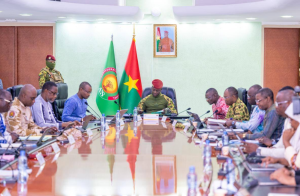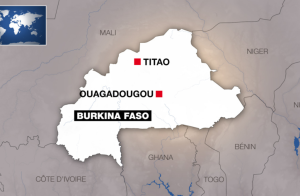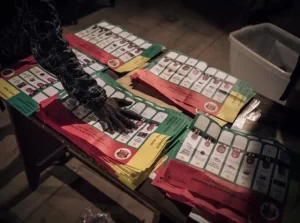DRC / President Félix Tshisekedi in Kisangani: A promise of land justice and prosperity

In the midst of an electoral frenzy, President Félix Tshisekedi has chosen the city of Kisangani, the jewel in the crown of Tshopo province, as a major stopover in his campaign on 29 November 2023. On his arrival at Bangoka international airport, the vibrant welcome from the people of Kisangani, tinged with song, dance and honorary slogans, marked the start of a profound dialogue with the local population.
This human tide, which stormed the airport facilities and the city’s main thoroughfares, bore witness to the palpable enthusiasm for the charismatic leader.
President Félix Tshisekedi was sensitive to this fervour and devoted his time to listening attentively to the concerns of Kisanganese of all ages.
The exchanges were marked by a touching sincerity, creating a special bond between the President and this dynamic community.
At the heart of this exchange, President Félix Tshisekedi made a significant statement, promising concrete measures against land grabbers, a crucial issue in the urban-rural commune of Lubunga.
«Those who have deprived the community of its land will be held accountable», he said, underlining his commitment to land justice and the protection of citizens’ legitimate rights.
This pledge to combat illegal land practices is part of President Tshisekedi’s wider vision to ensure the well-being of the population.
His commitment to military wives, with the promise to improve their husbands’ pay through a recently enacted military programming law, demonstrates his concern to support families who contribute to national security.
The people of Kisangani, in turn, responded with renewed commitment, promising to support Félix Tshisekedi in the forthcoming elections on 20 December.
This electoral rendezvous is shaping up to be an opportunity for the community to show its appreciation for a leader who is not content with promises, but who demonstrates a real desire to resolve the crucial problems that affect the daily lives of the population.
Jean-Robert TCHANDY











